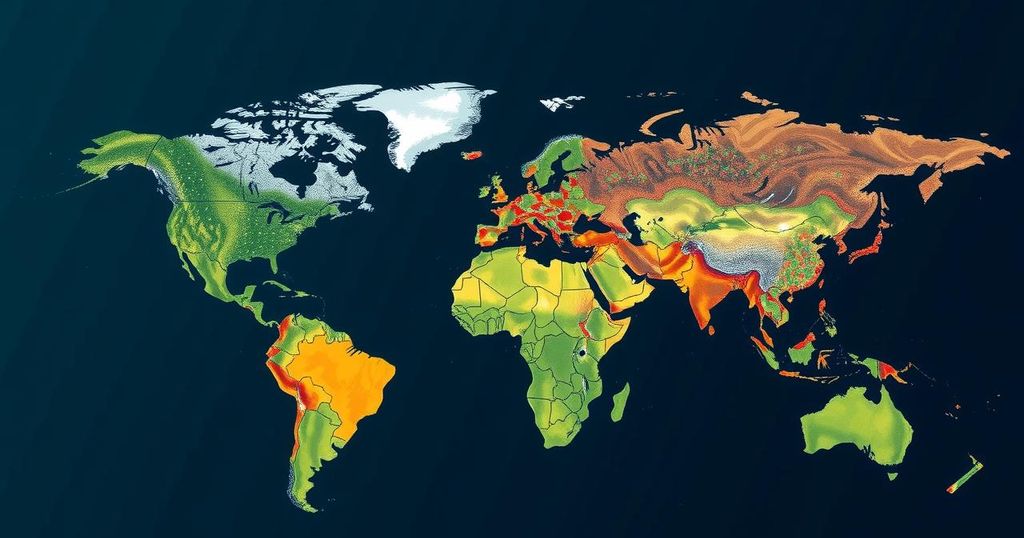Wealthier nations are beginning to pay poorer countries damages from climate change, exemplified by the $750 payment to Christopher Bingala from Malawi following Cyclone Freddy. This funding initiative, part of a larger $720 million pledge, seeks to address the disproportionate impact of climate events on low-income nations, though it is currently regarded as insufficient by experts as climate-related disasters escalate. Discussions at COP29 aim to finalize guidelines for future compensation and aid measures.
In the early hours of the morning, flooding from Cyclone Freddy devastated the home of Christopher Bingala in Malawi, forcing him to evacuate with his children. As a subsistence farmer, he faced significant losses, including his home and livestock, with no resources to recuperate. However, Bingala received a payment of approximately $750—one of the first instances of “loss and damage” funding meant to support those affected by climate change disasters. This funding initiative comes as wealthier nations acknowledge their role in climate change while low-income countries like Malawi bear the brunt of its impacts without significant contribution to global emissions.
In response to worsening climate phenomena, about $720 million has been committed by richer nations, including the European Union and the United States, although climate experts assert that this funding is insufficient as the scale and frequency of climate-related disasters grow. At COP29 in Azerbaijan, negotiations are underway regarding compensation amounts for developing nations as part of broader climate finance packages that address loans and investments. Prime Minister Philip Davis of the Bahamas emphasized the responsibility of wealthy nations, stating that those whose economies are bolstered by emissions must take accountability for the harm caused.
The devastation from Cyclone Freddy resulted in the displacement of approximately 650,000 individuals in southern Malawi, compounding hardships for affected families like Bingala’s, which endured food shortages even resorting to consuming deceased livestock due to scarcity. Though Bingala and his family received cash assistance that enabled them to relocate and rebuild, challenges remain, particularly in accessing education and replacing lost livestock.
Scotland’s government spearheaded the funding initiative, leading efforts as the first nation to allocate resources specifically for loss and damage. In Malawi, non-profit organization GiveDirectly distributed the funds, positively impacting around 2,700 families. Yolande Wright of GiveDirectly stated that low-income households in less wealthy nations often lack any form of insurance against extreme weather events.
The program in Malawi serves as a pilot for an expanding funding system aimed at compensating economically vulnerable nations disproportionately affected by climate change, despite their minimal contributions to greenhouse gas emissions. The urgent need for loss and damage funding is intensifying as studies project it could reach $250 billion annually by 2030, exacerbated by the rising intensity of climatic disasters. Prime Minister Davis emphasized the broader implications, warning that inaction could result in regional instability and displacement, declaring, “When my islands are swallowed up by the sea, then what do my people do?”
The text discusses the urgent issue of climate change impacts disproportionately affecting low-income countries, particularly in the context of funding for loss and damage caused by severe weather events. Cyclone Freddy, which struck Malawi, exemplifies the challenges faced by communities with limited resources to recover. The notion of compensating these nations through specific funding initiatives represents a significant shift in climate policy, acknowledging the responsibility of wealthier nations whose industrial activities have significantly contributed to global emissions. Recent commitments by various countries aim to address immediate recovery needs and broader ecological and cultural losses related to climate change, emphasizing the necessity for a profound and systemic approach to climate finance.
In summary, the recent initiatives to provide loss and damage funding represent critical steps towards addressing the severe impacts of climate change on vulnerable nations. As exemplified by the assistance given to Christopher Bingala and many others in Malawi, these funds can facilitate recovery; however, the overall amount pledged is still alarmingly inadequate in the face of escalating climate disasters. The ongoing discussions at international climate conferences underscore the urgent need for greater financial commitments by wealthier nations to fulfill their moral obligations and ensure the survival and stability of communities adversely affected by climate change.
Original Source: www.kanw.com







